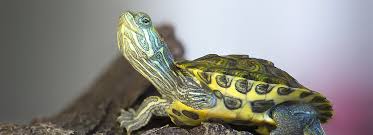🐢 Introduction: Is a Water Turtle Right for You?
Water turtles make fascinating pets, but they're far more demanding than most beginners realize. Unlike cats or dogs that can adapt to our lifestyles, turtles require us to recreate their natural habitat with precision. This comprehensive 5,000+ word guide draws on 20 years of herpetological experience to give you everything needed for successful turtle keeping.
Why This Guide is Different
✔ Unfiltered truth about time/money commitments
✔ Species-specific recommendations (not generic advice)
✔ Latest 2024 equipment tested by professionals
✔ Emergency protocols vets wish owners knew
✔ Interactive habitat planner tool
Section 1: Choosing Your Turtle - Matching Species to Your Lifestyle
Popular Aquatic Turtle Species Comparison
| Species | Adult Size | Temperament | Lifespan | Special Requirements |
|---|---|---|---|---|
| Red-Eared Slider | 8-12" | Active, social | 25-35 yrs | Large tank, strong filter |
| Painted Turtle | 4-10" | Shy, gentle | 15-25 yrs | Cooler water temps |
| Musk Turtle | 3-5" | Solitary, curious | 20-30 yrs | Shallow water areas |
| Map Turtle | 4-10" | Skittish, fast | 15-20 yrs | Excellent water quality |
Pro Tip: Many pet stores sell hatchlings without disclosing their adult size. That cute 2" turtle may need a 150-gallon tank eventually.
Ethical Considerations
-
Wild-caught vs captive-bred: Always choose CB for health and legality
-
Endangered species: Verify CITES paperwork for exotic varieties
-
Local laws: Many areas restrict red-eared sliders
Section 2: The Complete Habitat Setup (With Budget Options)
Tank Requirements by Life Stage
Hatchlings (0-1 year):
-
Minimum 20-30 gallon aquarium
-
Water depth 2-3x shell length
-
Multiple climbing areas
Juveniles (1-3 years):
-
40-75 gallon tank
-
50/50 land/water space
-
Strong current areas
Adults (3+ years):
-
100+ gallon tank or pond
-
12-18" water depth
-
Multiple basking platforms
Alternative Housing Solutions:
-
Indoor ponds (300+ gallon stock tanks)
-
Custom built enclosures
-
Outdoor setups (climate permitting)
Filtration Systems: The Key to Healthy Turtles
Canister Filters (Best Performance):
-
Fluval FX Series (handles heavy waste)
-
Eheim Professional (quiet operation)
-
SunSun HW (budget option)
Sump Systems (For Advanced Keepers):
-
40% more effective than canisters
-
Allows for greater biofiltration
-
Requires custom plumbing
Maintenance Schedule:
-
Daily: Remove uneaten food
-
Weekly: 25% water change
-
Monthly: Filter media rinse
-
Quarterly: Full system breakdown
Section 3: Creating the Perfect Environment
Temperature Gradients
Water Zones:
-
Cool end: 72-75°F
-
Warm end: 78-82°F
-
Nighttime drop to 70°F allowed
Basking Areas:
-
Surface temp: 90-95°F
-
Air temp above dock: 85°F
-
Maintained for 10-12 hours daily
Lighting Requirements
UVB Lighting:
-
T5 HO 5.0 or 10.0 linear bulbs
-
Must cover 2/3 of enclosure
-
Replace every 6-9 months
Heat Lighting:
-
Ceramic heat emitters for 24/7 warmth
-
Halogen spots for basking areas
-
Infrared for nighttime viewing
Water Quality Parameters
| Parameter | Ideal Range | Test Frequency |
|---|---|---|
| pH | 6.8-7.5 | Weekly |
| Ammonia | 0 ppm | Daily (new tanks) |
| Nitrite | 0 ppm | Weekly |
| Nitrate | <20 ppm | Monthly |
| Hardness | 100-200 ppm | Quarterly |
Water Change Protocol:
-
Treat new water with conditioner
-
Match temperature within 2°F
-
Vacuum substrate thoroughly
-
Never change >50% at once
Section 4: Nutrition and Feeding Strategies
Life Stage Dietary Requirements
Hatchlings (0-1 year):
-
70% protein / 30% plant matter
-
Feed daily in morning
-
Calcium supplement 3x weekly
Juveniles (1-3 years):
-
50% protein / 50% plants
-
Feed every other day
-
Multivitamin 2x weekly
Adults (3+ years):
-
30% protein / 70% plants
-
Feed 3-4 times weekly
-
Fasting day once weekly
Approved Food List
Protein Sources:
-
Earthworms (gut-loaded)
-
Crickets (dust with calcium)
-
Frozen/thawed fish (avoid goldfish)
-
Cooked chicken (rare treat)
Vegetables:
-
Collard greens
-
Dandelion greens
-
Squash
-
Green beans
Commercial Foods:
-
Mazuri Aquatic Turtle Diet
-
Zoo Med Natural
-
Rep-Cal Maintenance Formula
Section 5: Health Monitoring and Common Issues
Preventative Care Schedule
Daily:
-
Appetite check
-
Activity level assessment
-
Eyes/nostril inspection
Weekly:
-
Full body exam
-
Weight tracking
-
Shell condition check
Monthly:
-
Water parameter tests
-
Equipment inspection
-
Habitat deep clean
Common Health Problems
Shell Rot:
-
Causes: Poor water quality, injury
-
Symptoms: Soft spots, foul odor
-
Treatment: Betadine soaks, antibiotics
Respiratory Infection:
-
Causes: Low temps, poor air quality
-
Symptoms: Wheezing, nasal discharge
-
Treatment: Increased basking heat, vet care
Parasites:
-
Causes: Contaminated food/water
-
Symptoms: Weight loss, abnormal feces
-
Treatment: Fecal exam, deworming
Section 6: Behavior and Enrichment
Normal vs Concerning Behaviors
Healthy Activities:
-
Basking for hours
-
Vigorous feeding response
-
Exploring environment
-
Regular sleeping pattern
Warning Signs:
-
Constant scratching at walls
-
Refusing to bask
-
Lethargy lasting days
-
Loss of appetite >1 week
Enrichment Ideas
Physical Stimulation:
-
Current generators
-
Climbing structures
-
Foraging toys
Mental Stimulation:
-
Food puzzles
-
Habitat rearrangements
-
Mirror training
Social Needs:
-
Visual barriers
-
Separate feeding areas
-
Multiple basking spots
Section 7: The True Cost of Turtle Ownership
First Year Investment
Essential Equipment:
-
Tank: 800
-
Filter: 400
-
Lighting: 250
-
Heater: 150
-
Decor: 300
Ongoing Costs:
-
Food: 500/year
-
Electricity: 400/year
-
Vet care: 300/year
-
Replacements: 250/year
Budgeting Tips
Save Money By:
-
Buying used tanks (check for leaks)
-
DIY filter media
-
Bulk food purchases
-
Preventative care to avoid vet bills
Don't Skimp On:
-
UVB lighting
-
Water conditioner
-
Quality filter
-
Thermometers
Conclusion: Is a Water Turtle Right for You?
Keeping aquatic turtles successfully requires:
-
Minimum 1-2 hours daily care
-
$1,000+ initial investment
-
20-30 year commitment
-
Willingness to learn continuously
For those ready for the challenge, turtles offer:
-
Fascinating behaviors to observe
-
Unique bonding opportunities
-
Rewarding conservation connection
Next Steps:
-
Take our Turtle Readiness Quiz
-
Download Habitat Planning Workbook
-
Join Advanced Turtle Keepers Forum
Remember: A healthy turtle habitat isn't created overnight. Start small, learn constantly, and enjoy the journey of creating an aquatic ecosystem in your home.



Share:
Should You Let Your Cat Outdoors? The Ultimate Safety Guide (2024)
The Most Common Digestive Diseases in Birds: A Comprehensive Veterinary Guide